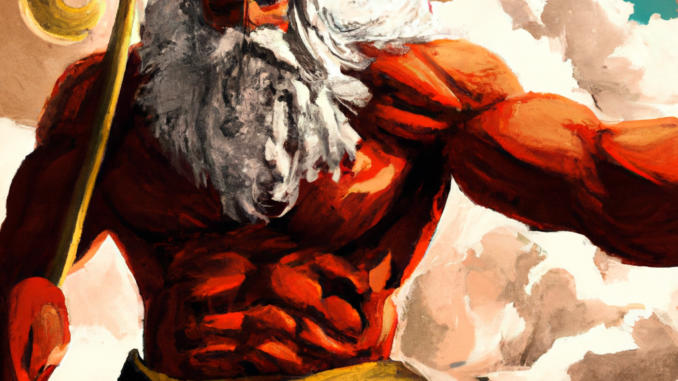
Leviathan – The most powerful force in the World. A mechanism for social organization.
In feudal Europe (1000AD to 1500AD), power was organized locally and at a small scale. Numerous hereditary fief holders held significant sway over military, political, legal and tax policy. In this regard, the feudal world was somewhat decentralized. The Church, on the other hand, operated at large scale and across borders. The Church influenced policy, collected revenue streams from across Europe and, on occasion, raised multinational armies. God, via the Catholic Church, became the first European leviathan.
In 1517 Martin Luther, fed up with the corruption of the church, posted his Ninety-Five Theses on the Church door. He condemned church practices such as the sale of “indulgences” as counter to God’s law. In doing so, he kicked off the Protestant Reformation. At the same time new technologies, such as gunpowder and canons, significantly impacted the organization of power. Guns allowed foot soldiers with relatively little training to defeat knights in battle. Canons turned castles, the defensive masterpiece of the feudal period, into death traps. In order to effectively deploy guns and canons, however, societies needed to operate at a larger scale. Feudal society, operating at a small scale, rapidly lost military relevance. Thus, the beginning of the 16th century marked the collapse of the feudal period, along with the erasure of the foundations of power that the God leviathan depended upon.
As new power imperatives emerged, the Church’s influence waned while that of the nation state grew. Military effectiveness now required large, expensive armies supported by industrial scale production. It further relied upon large centralized kingdoms/empires to tax and conscript soldiers from large population pools. Bigger societies proved effective at developing manufacturing supply chains needed to sustain industrial era armies. The resulting “Nation States” became the new leviathan.
Like the Catholic Church of the late feudal period, the nation State leviathan of the early 21st century is devolving into corruption and incompetence. As evidence, consider healthcare.gov, the unorderly retreat from Afghanistan (that armed the Taliban with billions of dollars’ worth of military equipment), trillions in debt, massive money printing operations and ineffective “Wars” on Drugs/Terror/speech and so on. Simultaneously, technological innovation is once again reshaping power and how it most effectively organizes. The transformational impact of the internet is just the beginning. Few pre-internet institutions (business, social or government) will survive the transition to a networked world, and those that do will look entirely different.
The network enables small teams to generate tremendous value, and to do so remotely with a laptop. Capital intensive industrial scale production as the key source of value generation is being replaced by digital information workers. Mobile workers can easily relocate and benefit from jurisdictional arbitrage. By changing location, workers and businesses can control the legal framework under which they labor. This reality directly reduces the power of the state leviathan.
The network further allows substantial portions of value creation to be separated from manufacturing and moved into the cloud. Consider the value added by a new iPhone design, for example. How much of the value is created by the manufacturing process and how much is created via design and software? The high value digital portion will be separated into the cloud, outside of “physical location” where governments’ rule. The network also effectively disintermediates financial institutions and threatens to replace them with decentralized, open and trustless applications. The network is rising to challenge the state for the title of the most powerful force in the universe. The outcome of this battle will define our times.
Why does Balaji describe leviathans in such great detail in his book? I think there are a couple of reasons: First, the leviathan model highlights the titanic mechanisms of social organization that exist and shift over time. Understanding the forces of social organization at a high level acts as an important prerequisite to understanding The Network State. Second, it demonstrates how technological changes (–i.e., gunpowder, the internet) impact how societies organize. Third, A person’s chosen leviathan reveals a great deal about their preferred tactics. Those who appeal to God as their leviathan, for example, say “God will smite you” for wrong behavior; statists, on the other hand, pass laws and regulations; while networkers write code and build apps. Finally, the leviathan model underpins Balaji’s tripolar world model discussed below.
Navigation
- Part I – Definition, Introduction and Frontiers
- Part II – On Leviathans: God, State, Network
- Part III – Problems Solved by the Network State
- Part IV – Trends Driving the Network State
- Part V – Designing a Startup Society and Building a Network State
- Part VI – Network Unions
- Part VII- The Impact of Network States, Two Predictions and One Question